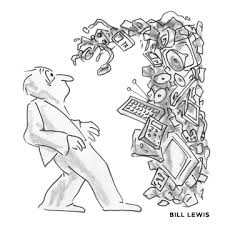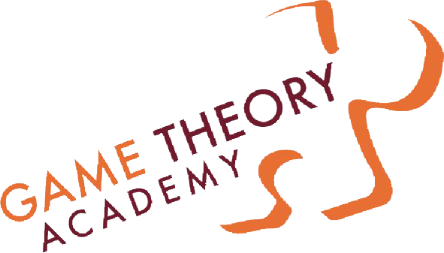By Joanne Da Luz, GTA Instructor
As long as everyone acts in their own best interest, we will all have our needs met. This is how I decided to open class this session. Students were greeted with five statements to which they had to select Agree or Disagree – this was one of them. And, it leads right in to the opening lesson; schools of thought and the three assumptions of capitalism.
I’m a third time GTA instructor now – a veteran of sorts. And, what I find most appealing to beginning another 10 week session with a new set of students is how to capitalize on the curriculum, engaging students in deeper conversation with each other and really, within themselves, about how to prepare for making important decisions.
 Although the statement generates quite a wide and varied level of reaction, it isn’t this important assumption of capitalism that has a lasting effect on the class. Another assumption, (there are three, as my students will hopefully remember to tell you!) is everyone has equal access to perfect information. For some reason, this assumption generates more reactions, on more occasions, throughout the course. What are some examples of having access to perfect information? So far, each time I pose this question, students are stumped. I view their reaction as an opportunity to teach as well as an opportunity to find out how my current group of students are navigating the world.
Although the statement generates quite a wide and varied level of reaction, it isn’t this important assumption of capitalism that has a lasting effect on the class. Another assumption, (there are three, as my students will hopefully remember to tell you!) is everyone has equal access to perfect information. For some reason, this assumption generates more reactions, on more occasions, throughout the course. What are some examples of having access to perfect information? So far, each time I pose this question, students are stumped. I view their reaction as an opportunity to teach as well as an opportunity to find out how my current group of students are navigating the world.
We brainstormed for a minute what it might mean to have access to perfection information and when all I heard was crickets, I looked outside and remembered a billboard I saw for Covered California. I reminded students that although we now have the Affordable Care Act, it doesn’t mean that everyone has access to perfect information regarding its benefits. I shared with students that although there are in-person locations for signing up for Covered CA, most of the information has been disseminated by the internet. Brainstorming more examples brought us to the issue of access to wi-fi, internet, and the concept of net neutrality. What does it mean to have equal access to perfect information when one doesn’t have equal access to internet? Should the internet be a public utility? If important, civic, duties are going to continue to be disseminated through the internet, how does everyone have access to perfect information?
 The assumption came up again after the flea market activity. During the review, students learned that the sellers had quite a range of prices at which they were willing to sell. Frustrated in response, some vowed to never buy something again without learning about the range of prices for an item. They also referred to the concept of “herding” and insisted that they would never congregate around a seller just because he/she appeared “popular” nor would they be swayed by “the herd.” When we studied The Savvy Consumer and predatory financing, students were furious to learn that there is an interest rate outside of the current market rate that is considered predatory. They became clear on the following: Where does one look to determine whether or not the costs for a loan is exceedingly high? How does one know that a company is taking advantage of an individual consumer with deceptive fees? How much is “excessive?”
The assumption came up again after the flea market activity. During the review, students learned that the sellers had quite a range of prices at which they were willing to sell. Frustrated in response, some vowed to never buy something again without learning about the range of prices for an item. They also referred to the concept of “herding” and insisted that they would never congregate around a seller just because he/she appeared “popular” nor would they be swayed by “the herd.” When we studied The Savvy Consumer and predatory financing, students were furious to learn that there is an interest rate outside of the current market rate that is considered predatory. They became clear on the following: Where does one look to determine whether or not the costs for a loan is exceedingly high? How does one know that a company is taking advantage of an individual consumer with deceptive fees? How much is “excessive?”
Upon beginning the course, my students immediately made it clear to me that the assumption, as long as everyone acts in their own best interest, we will all have our needs met, is unrealistic. So, I knew that developing the concept of “the invisible hand” would not be a difficult task. But what I have learned is that having access to perfect information is substantially more important to them as individuals. I’m pleased to know that as a result, my students are not only equipped with better decision making skills but strive to seek out information, even if it’s not so perfect.
